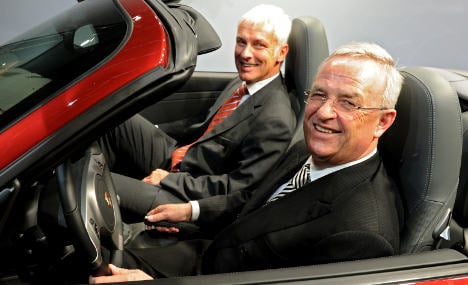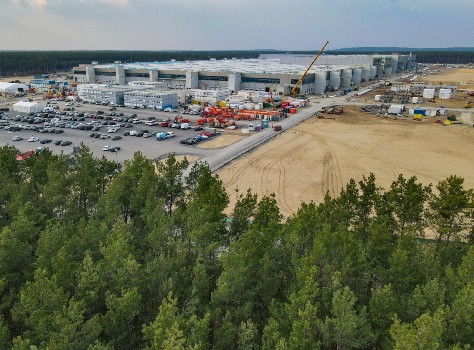But “our common goal is and remains a merger,” stressed Martin Winterkorn, chairman of both VW and the Porsche Holding SE company, during an annual Porsche general assembly in Stuttgart, southern Germany.
The probability that it will happen this year has fallen from 70 percent to 50 percent however owing to legal proceedings initiated by investment funds in the United States and a German investigation, the companies said.
Dieter Pötsch, finance director of Porsche Holding SE, said a probe of two former Porsche executives suspected of stock market manipulation “will be completed at the earliest in early 2012.”
In the United States, investment funds have filed another lawsuit against the maker of 911 sports cars for allegedly causing the funds to suffer several billion dollars in losses as a result of misleading comments on Porsche’s intentions to take over VW.
The current plan is still to merge VW and Porsche, possibly by having VW buy the shares in the manufacturing division Porsche AG that it does not already own via stock options exercised between November 2012 and January 2015.
“We cannot say with certainty which path Porsche SE will take,” Pötsche said in reference to the holding company.
VW, which is Europe’s biggest carmaker and owns brands such as Audi, Lamborghini, Seat and Skoda, wants to make Porsche its 10th brand.
A crucial step towards that goal is a planned Porsche SE capital increase to pay down debt, details of which were unveiled on Thursday.
A €5 billion operation is planned, while the holding company’s debt stands at €6.34 billion.
Still scheduled to take place by the end of May, the capital increase would involve the emission of an equal number of ordinary and preferred shares according to Porsche SE.
It declined to provide more information however before obtaining approval from the German financial market regulator BaFin.
“We are confident this offer will convince our shareholders,” Winterkorn commented.
The Porsche and Piech families, which are the main shareholders in Porsche SE, “will play an important part in this capital increase,” Pötsche said.
Qatar Holding, another key shareholder, was also interesting in buying more shares, he added.
AFP/ka



 Please whitelist us to continue reading.
Please whitelist us to continue reading.
Member comments